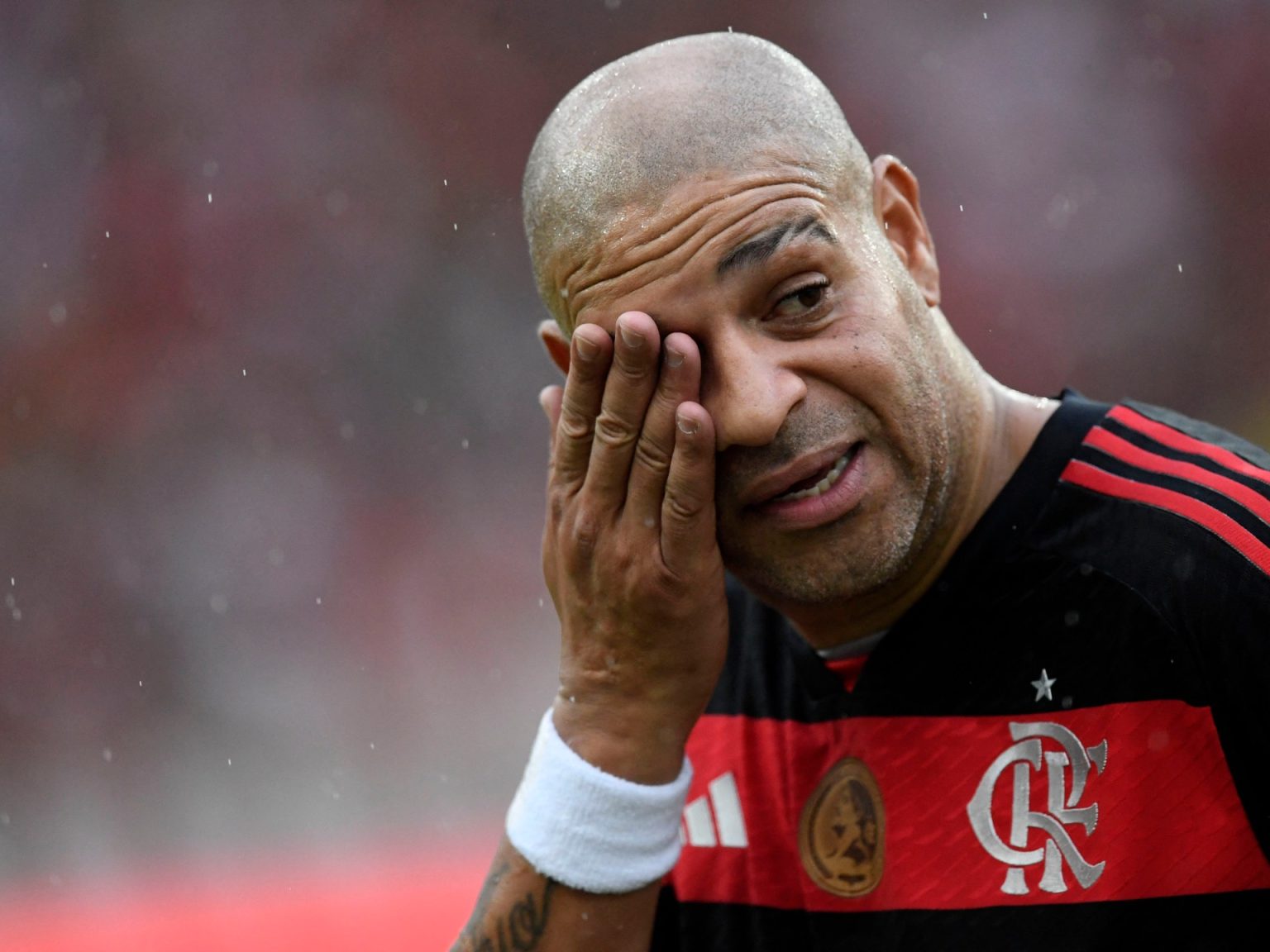Adriano Leite Ribeiro, affectionately known as “The Emperor” during his zenith, recently concluded his football journey with a testimonial match, a poignant curtain call at the Maracana stadium, the very grounds where his promising career began with Flamengo. This event, a celebration of his legacy, served as a formal farewell to the sport, eight years after his last official match. While Adriano’s early career trajectory hinted at a legendary path, reminiscent of other Brazilian football icons, personal struggles and battles with alcoholism ultimately derailed his ascent, leaving behind a sense of what could have been. The testimonial match, however, offered a moment of reflection, a chance to acknowledge his achievements, and a touching tribute to a career marked by both brilliance and hardship.
The testimonial, a clash between “Flamengo Legends” and “Friends of Italy”, provided a platform for Adriano to reconnect with former comrades and bask in the adoration of fans. The atmosphere was electric, charged with nostalgia and respect for the once-dominant striker. The match itself, a 4-3 victory for the Flamengo Legends, was more than just a scoreline; it was a symbolic reunion, a gathering of footballing giants who had shared moments of glory with Adriano. Notable figures such as Romario and Julio Cesar, stalwarts of Brazilian football, graced the pitch alongside the Emperor, underscoring the impact Adriano had made on the sport and the camaraderie he shared with his peers. The inclusion of his son, Adrianinho, added a deeply personal touch to the proceedings, highlighting the generational influence of Adriano’s career.
Adriano’s career, while ultimately cut short by personal struggles, was nevertheless adorned with significant accomplishments. He clinched the Copa America title in 2004 and the Confederations Cup the following year, cementing his place as a key player for the Brazilian national team. At the tender age of 22, he was already considered a rising star, poised to become one of the game’s greats. His performances for Inter Milan further solidified his reputation as a formidable force in club football. He amassed four Serie A titles and two Italian Cup trophies, showcasing his prolific goal-scoring ability and becoming a fan favorite at the San Siro. His journey also included spells at other Italian clubs like Roma, Parma, and Fiorentina, adding further layers to his professional experience.
However, the promise of a glittering career was overshadowed by personal challenges. Following his participation in the 2006 World Cup in Germany, Adriano’s performance began to decline. He struggled with weight issues and battled alcohol addiction, obstacles that ultimately hampered his progress and led to his gradual disappearance from top-level football. His candid confession in “The Players’ Tribune,” a platform for athletes to share their personal narratives, offered a raw and unflinching account of his struggles. He acknowledged his unfulfilled potential, labeling himself the “biggest waste in football,” a stark self-assessment that reflected the pain of a career derailed by personal demons.
The testimonial match, therefore, transcended a simple farewell to football. It became a symbol of redemption, a chance for Adriano to reconcile with his past and embrace the support of his fans, teammates, and family. The presence of his son on the field underscored the importance of family in his life, a poignant reminder of the personal connections that endure beyond the trials and tribulations of a professional career. The emotionally charged moment when a message from his deceased father, crafted using artificial intelligence, appeared on the screen, further amplified the significance of the event. This touching tribute encapsulated the emotional depth of the occasion, showcasing the human story behind the footballing legend.
The testimonial served as a powerful reminder that even amidst the pressures and temptations of professional sports, the human element remains paramount. Adriano’s story, a blend of triumph and tragedy, underscores the fragility of sporting careers and the importance of addressing mental health and addiction issues. While his career may not have reached the heights predicted in his early years, his impact on the game and the hearts of fans is undeniable. The testimonial match allowed Adriano, the Emperor, to reclaim his narrative, to acknowledge his struggles, and to bid farewell to the sport that had defined a significant chapter of his life, leaving behind a legacy that transcends mere statistics and trophies.

